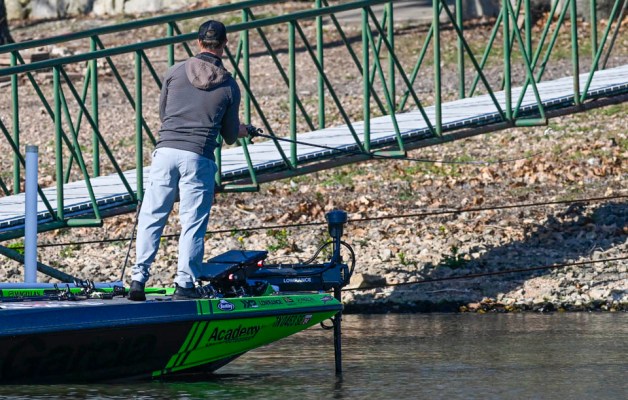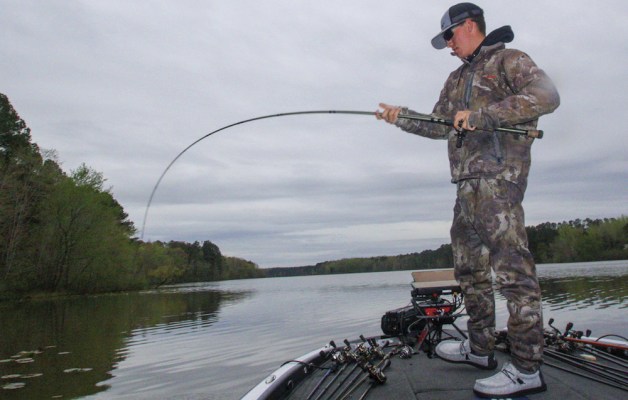Today there’s a cold front sweeping across most of the smallmouth territory in our country, but don’t let that fool you. The water is heating up and the smallmouth are getting lethargic.
The lack of energy that they display in hot water is like when the water gets really cold. They don’t move much and they look for the deepest water they can find. At the same time, though, there’s one big difference in how they act — they need to eat a lot because of the warm water. Their metabolism is high. Cold water smallies don’t eat much because their metabolism is low.
This need for food is what makes them vulnerable. They can still be caught if we look at things from their point of view. That means we should do what Billy Westmoreland suggested. That’s the thing we talked about last week. We should think like a fish.
The first thing we need to consider is the fact that they aren’t going to chase things very far. I know that lots of them are caught on crankbaits and spinnerbaits but that’s probably because the lure is running right past their nose. All they need to do is open their mouths, swim a foot or so and grab whatever they’re after.
A better way to catch them is with a jig. You can work a jig slow and careful in the general vicinity of where the fish are holding. That gives them the opportunity to feed without moving very far or expending much energy.
The other thing to keep in mind as summer comes along is that the smallmouth are going to move deep. They aren’t largemouth. They will not move into shallow water and hide under grass, laydowns or docks. They move out, away from the bank. And they almost always go to the deepest water they can find.
There are a few exceptions to this. At night they tend to move a little shallower, especially in lakes where they feed heavily on crawfish. Almost always that’ll be around rocks and heavy grass. But even then you have to get your bait close to them and, in most cases, give them plenty of time to catch it.
The other major exception is when they chase schooling shad. They don’t do that nearly as much as largemouth — they’re more likely to suspend below the shad waiting for one to start to die and drift down towards the bottom — but they will do it from time to time. Sometimes their instincts as predators get the better of them. They can’t help themselves.
If you are lucky enough to be out there when they do move to the top, cast a popper or walking stick into the middle of the action and hang on. This is one time that smallmouth bass act like largemouth bass.
Anglers often refer to this time of the year as the summer doldrums. That’s true sometimes, but it doesn’t have to be that way. You can still catch smallies if you look at the world through their eyes.





